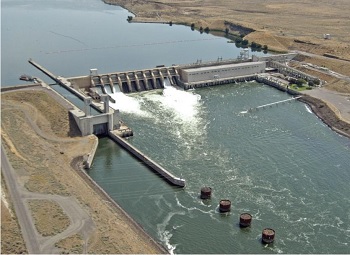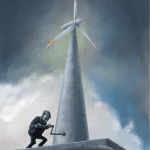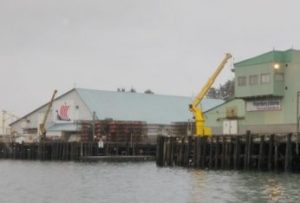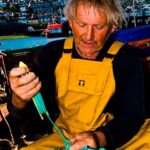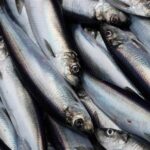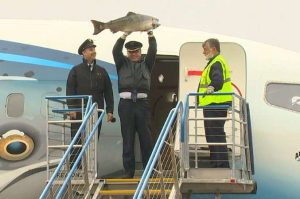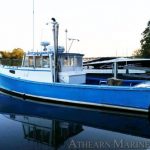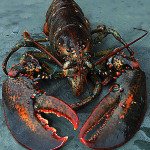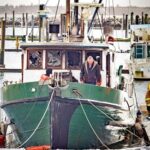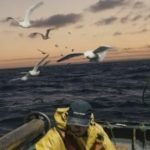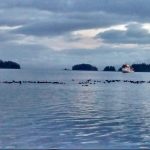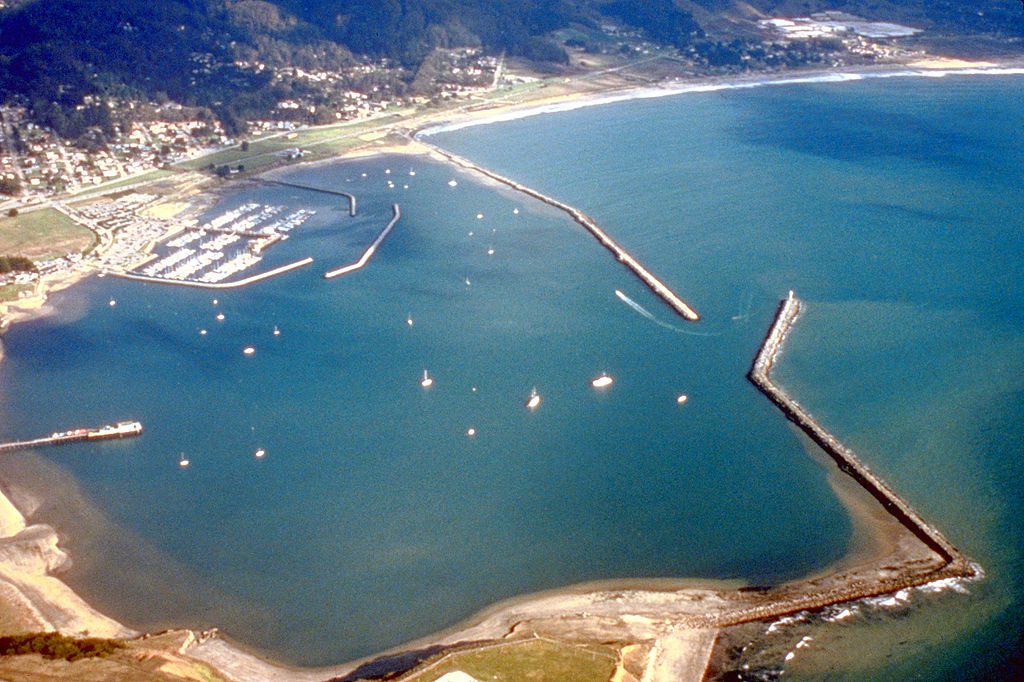Tag Archives: Opinion
Maine lobstermen will not be scapegoated over right whale
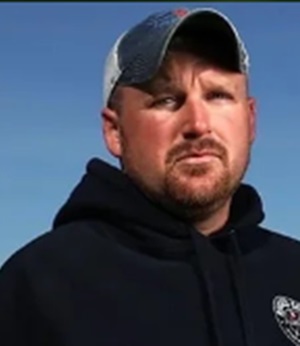 New England fishermen are bracing themselves for another salvo of regulation and activist pressure after the tragic entanglement death of a right whale that washed ashore on Martha’s Vineyard. While the future of our fisheries is uncertain, 2023 showed how much resilience and determination there is in our maritime communities. My organization – the New England Fishermen’s Stewardship Association – and our many partners are prepared to ward off any attempt to scapegoat Maine lobstermen for the declining population of the majestic right whale. Regulators and out-of-state agitators are together impugning one of the most sustainable fisheries in the world for right whale deaths. Their claims are baseless and contradicted by their own data. As agencies and NGOs ponder next steps, they might consider the fighting spirit this last year has showcased among fishermen. more, >>click to read<< by Dustin Delano 12:06
New England fishermen are bracing themselves for another salvo of regulation and activist pressure after the tragic entanglement death of a right whale that washed ashore on Martha’s Vineyard. While the future of our fisheries is uncertain, 2023 showed how much resilience and determination there is in our maritime communities. My organization – the New England Fishermen’s Stewardship Association – and our many partners are prepared to ward off any attempt to scapegoat Maine lobstermen for the declining population of the majestic right whale. Regulators and out-of-state agitators are together impugning one of the most sustainable fisheries in the world for right whale deaths. Their claims are baseless and contradicted by their own data. As agencies and NGOs ponder next steps, they might consider the fighting spirit this last year has showcased among fishermen. more, >>click to read<< by Dustin Delano 12:06
Sam Parisi asks, How Accurate is NOAA and NOAA Fishery Survey Science?
 The agency is not required to compare their results with other independent science. The unproven science may bring concern on the health of fish stocks the industry depends upon. Our Fishermen and Fishing Industry depend on sound science. We need a Magnuson Act Amendment which would require NOAA to compare their science with other independent scientific surveys before any restrictions are placed on, or allocation cuts are enacted. Thank you, Sam Parisi. (click here to comment) 07:22
The agency is not required to compare their results with other independent science. The unproven science may bring concern on the health of fish stocks the industry depends upon. Our Fishermen and Fishing Industry depend on sound science. We need a Magnuson Act Amendment which would require NOAA to compare their science with other independent scientific surveys before any restrictions are placed on, or allocation cuts are enacted. Thank you, Sam Parisi. (click here to comment) 07:22Commentary: Offshore wind foes push false info about whale deaths
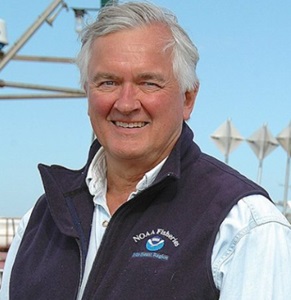 As the former former of New Bedford, regional administrator of NOAA Fisheries, and as president of the Board of the New Bedford Ocean Cluster, I know that commercial fishing and offshore wind can co-exist and thrive. But this requires honest communication about the real conflicts between wind and fishing that need science-based thinking, baseline and ongoing research, respectful listening, and collaborative problem solving. This is made so much more difficult when there is an ongoing disinformation campaign that distorts the facts, presents false information, and operates with motives that can’t be trusted and that are geared towards stopping projects rather than solving problems. more, >>click to read<< 07:14
As the former former of New Bedford, regional administrator of NOAA Fisheries, and as president of the Board of the New Bedford Ocean Cluster, I know that commercial fishing and offshore wind can co-exist and thrive. But this requires honest communication about the real conflicts between wind and fishing that need science-based thinking, baseline and ongoing research, respectful listening, and collaborative problem solving. This is made so much more difficult when there is an ongoing disinformation campaign that distorts the facts, presents false information, and operates with motives that can’t be trusted and that are geared towards stopping projects rather than solving problems. more, >>click to read<< 07:14
Opinion: The tragic mismanagement of bycatch in Alaska
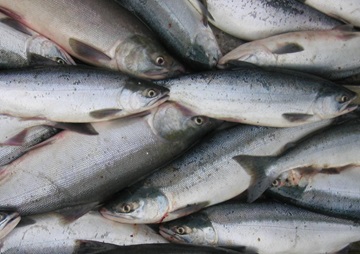 The commissioner of the Alaska Department of Fish & Game’s recent opinion piece on bycatch would make for good comedy if the topic wasn’t so serious. Doug Vincent-Lang extolled the North Pacific Fishery Management Council’s handling of bycatch in trawl fisheries off the coast of Alaska. As examples, he mentioned existing bycatch caps for chinook salmon and halibut bycatch measures that are not yet in effect. Other than that, here are the council “actions” he espouses. The council, of which he is a key member, has “initiated an analysis” concerning caps on chum bycatch, is “considering further fishing restrictions” related to crab in the Bering Sea and is “evaluating whether further protections are needed” for Tanner crab in the Gulf. He also notes that the council “support(s) further research” into the causes of the declines in these seminal Alaska fisheries stocks. >>click to read<< 12:29
The commissioner of the Alaska Department of Fish & Game’s recent opinion piece on bycatch would make for good comedy if the topic wasn’t so serious. Doug Vincent-Lang extolled the North Pacific Fishery Management Council’s handling of bycatch in trawl fisheries off the coast of Alaska. As examples, he mentioned existing bycatch caps for chinook salmon and halibut bycatch measures that are not yet in effect. Other than that, here are the council “actions” he espouses. The council, of which he is a key member, has “initiated an analysis” concerning caps on chum bycatch, is “considering further fishing restrictions” related to crab in the Bering Sea and is “evaluating whether further protections are needed” for Tanner crab in the Gulf. He also notes that the council “support(s) further research” into the causes of the declines in these seminal Alaska fisheries stocks. >>click to read<< 12:29
Opinion: Offshore wind, marine-life deaths by Carol Frazier
 Do you remember the line from “The Wizard of Oz” when Dorothy and her companions are on their way to Oz and are afraid of being attacked? The line was “Lions and tigers and bears – oh my! Lions and tigers and bears – oh my!” Well, I have revised that to “Murphy and Carney and Moore – oh my!” referring to the three Democrat governors of New Jersey, Delaware and Maryland who are absolutely determined to go full steam ahead on offshore wind, no matter what evidence of harm to wildlife and commercial fishing and the economy is presented. I read Doug Miller’s letter to the editor of Aug. 11 with interest, also. Regarding Mr. Miller’s statement that concern about whale deaths is nonsense, I beg to differ. >click to read< 08:54
Do you remember the line from “The Wizard of Oz” when Dorothy and her companions are on their way to Oz and are afraid of being attacked? The line was “Lions and tigers and bears – oh my! Lions and tigers and bears – oh my!” Well, I have revised that to “Murphy and Carney and Moore – oh my!” referring to the three Democrat governors of New Jersey, Delaware and Maryland who are absolutely determined to go full steam ahead on offshore wind, no matter what evidence of harm to wildlife and commercial fishing and the economy is presented. I read Doug Miller’s letter to the editor of Aug. 11 with interest, also. Regarding Mr. Miller’s statement that concern about whale deaths is nonsense, I beg to differ. >click to read< 08:54
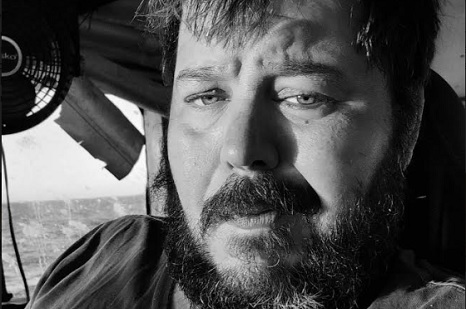
LEEMAN: Federal Regulators And Climate Alarmists Are Killing America’s Oldest, Most Iconic Industry
American fishermen are the most regulated in the world, and it’s driving experienced captains off the water and young people away from their homes in search of opportunities elsewhere. At 41, I’m one of the younger fishing boat captains in New England. I’m grateful Senator Susan Collins, R-Maine, met with me last week to discuss helping fishermen get a seat at the table with regulators. We who work the water, the same waters our families worked for generations, now find ourselves at the mercy of the “Faucis of fishing” — self-assured bureaucrats who sit behind desks with no sense of the harm they’re causing. >click to read< 07:53

Opinion: Mad Max, where are you now that we need you? By Joel Hovanesian
For decades, Richard Max Strahan has fought for and succeeded many times and was front and center in his quest to save the severely endangered right whales. He was a very outspoken critic of the commercial fisherman and the fishing industry in general, claiming that they were responsible for the dwindling number of whales along the Atlantic seaboard. Your actions and ideas have helped pave the way for many regulations that possibly helped this iconic animal, the jury’s still out on that. Regulations that cost millions of dollars to implement. Today, the right whales and all marine life for that matter are under assault from a much more sinister threat. Ocean wind farms. >click to read< 13:34
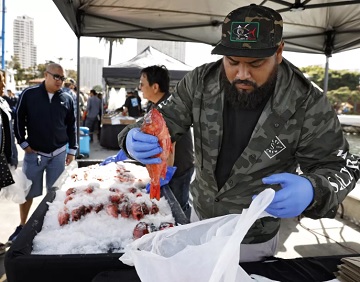
Biden needs to help California fishermen in our dispute over dangerous fish farms
When people think of California, they think of our coasts. Our vibrant ocean sustains a robust seafood industry, as well as many hospitality, tourism and recreation businesses. But in recent years, our coastal enterprises have faced a litany of challenges; pollution, climate change and development along the coast have made it difficult for independent businesses to survive. Now in 2023, another threat is looming: The National Oceans and Atmospheric Administration is scoping out Southern California as a new site for industrial-scale finfish farms. Last spring, NOAA identified 10 Aquaculture Opportunity Areas off the coast of Southern California. These areas are deemed ideal for offshore fish farms, despite the fact that two of them are in close proximity to a Superfund site where 500,000 barrels of the banned pesticide DDT were dumped. >click to read< 10:00
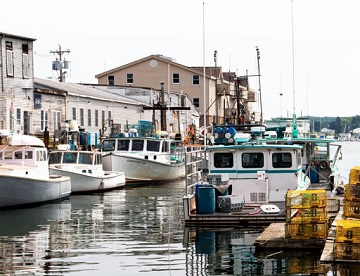
Opinion: How to Solve the Lobstermen vs Whalers Problem: Water Capitalism
The lobstermen and the whalers are at each other’s throats in Maine. The former need to use strong ropes to pull up their lobster traps from the ocean floor. The latter claim that this gear they use enmeshes their bread and butter, that is, whales, who are needlessly killed in this manner. It would be difficult to name other industries, or commercial interests that contended against one another in any such manner. Yes, those producing peas and those producing carrots compete against each other, as do bicycles and fish, shoes and socks. But none of them are suing the others over infringement of their territory. >click to read< 09:16

Cod: The New England Council has proposed a plan to restore cod by 2033
What that will mean is our fishing fleet would have to reduce their catch by whatever the council thinks will be helpful. Over the years NOAA has made reductions on cod and other species, based on their studies and science. Under law, they do not have to compare their findings. We need to update the Magnuson–Stevens Act that would require them to compare data before making restrictions on species of fish. Put this aside, if we want to bring back the cod, no fishing vessel can land cod over the next ten years. Great! So be it. Pay our fisherman to not catch cod. Farmers have a Farm Bill and pay farmers not to grow certain crops. So why can’t our government create a Fish Bill to do the same for the U.S. fishing industry? This could be paid for by increasing the duty on imported fish. This is a Win-Win solution. Sam Parisi, Gloucester, Mass. 19:27
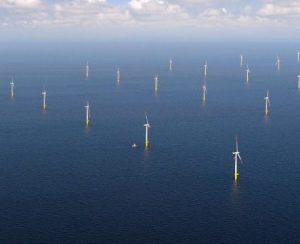
Opinion: Who owns the oceans?
There is a question that has been asked in our household for years. For us, it’s a personal question. Generations of family fisherman have been affected by the decisions of others, some known and many invisible. We have had to sit on the sidelines watching the demise of our industry while power brokers, politicians, and the money hungry chart the course when we are not even invited to the table. Now we find ourselves watching the final chapters play out, knowing that we don’t even have a role. The high jacking of our oceans didn’t happen overnight. The slow, methodical process has lined the pockets of the politicians at every level of government. Working in conjunction with private industry and environmentalists they have driven our beloved industry past the brink and left fisherman with no place left to fish. >click to read< 09:59
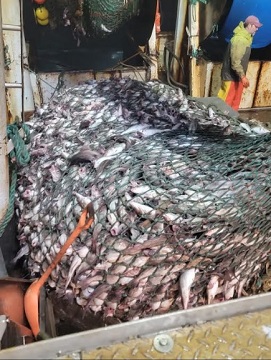
Jerry Leeman: So, let’s plug in what we know.
So, let’s run a logical thought, based on what our governments assumption on fish stocks is, with what we know. NOAA says there is nothing wrong with the biomass of white hake, but they cannot find adolescent hake. Well ask any lobstermen along the shorelines, they are seeing abundance of juvenile hake and cod in their traps. Imagine Lobstermen and inshore fishermen across a vast area all saying the same thing? NOAA says there’s nothing wrong with the biomass of haddock but same thing, they can’t find small fish. Well, what do we know?!! >click to continue reading< 08:33
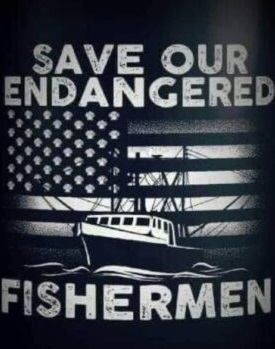
All for one and one for all – With Jerry Leeman
Well, if NOAA goes through with these cuts this coming year to groundfish stocks I’m afraid there won’t be a fishing season next year. They have created choke species thru faulty assessments. I don’t know why I say assessments because they really haven’t done enough to make any logical cuts to any stock. To my family and friends who are lobstermen. You will watch the bait prices double overnight once the last groundfish boat is done. No more bait will be landed thru the groundfish efforts. That’s right no redfish racks, no hard bait and no skates. This will happen. I’ll do my best to argue everyone’s circumstances and the errors of their data and sampling methods using on the job experience offshore for 14 years at sea in the last 21 years. The entire groundfish fleet Captains are united in this argument that the data is corrupt and wrong in many ways. All offshore fishermen spend more time trying to avoid fish due to the made-up choke species brought to us by bad science and lack of know how. >click to continue reading<, 15:03
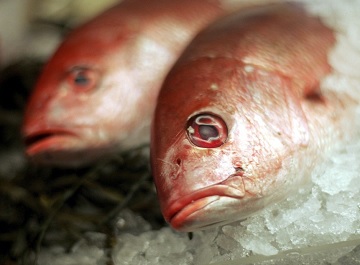
Catch Shares Enable Wealthy Landlords to Gobble Up Local Fisheries
A recent investigative report has reignited public discussion over catch shares, a controversial approach to fisheries management that privatizes the rights to fish. The investigation exposed how Blue Harvest Fisheries, owned by a billionaire Dutch family, became the largest holder of commercial fishing rights in New England, benefiting from lax antitrust regulations and pilfering profits from the local fishermen who work under them. As a commercial fisherman in Mississippi, I know these dynamics go well beyond New England. Here in the Gulf of Mexico, private equity firms and other large investors have come in and gobbled up the rights to fish, driving up the cost of fishing access and making it prohibitively expensive for fishermen like me to harvest fish in our own backyards. >click to read< 07:55

Let’s save Maine’s lobster industry from death by regulation
If you’ve ever been to the state of Oregon – home of the “other” Portland – you only need to drive south of the big city to see the human impact of overzealous conservationism. This is the habitat of the Spotted Owl, whose inclusion to the endangered species list in 1990 shut down the timber industry there, eliminating 32,000 jobs in the process. Something eerily similar is about to happen to iconic Maine lobstermen in an effort to save the Right Whale. >click to read< 08:07
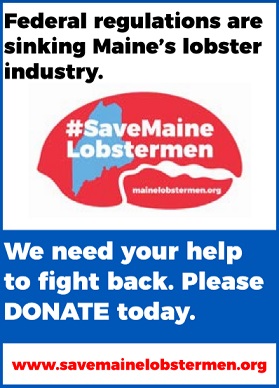
Opinion: Fighting whale-safe gear rules won’t ‘save Maine lobstermen’
The Maine Lobstermen’s Association has stepped up an advocacy campaign to “#Save Maine Lobstermen.” They and their political allies claim that new regulations to make fishing gear safer for right whales will put the lobster fishery out of business. Where is the evidence? Massachusetts and Canadian lobster fisheries are already investing in changes that the Maine Lobstermen’s Association claims are impossible. Indeed, Canada has invested $20 million to transition its trap fisheries to whale-safe gear by 2023. Digging in for a fight means that Maine lobstermen fall behind the competition. >click to read< 10:03

Special interest hit piece unfairly targets Southeast fisheries
I was disappointed by what I consider to be a targeted attack on Southeast Alaska salmon fisheries. A report on interceptions of British Columbia salmon in Southeast Alaska salmon fisheries was publicly released on Tuesday by Canadian environmental groups. Many Pacific salmon stocks are highly migratory and often travel across state and international borders. Several stocks migrate into Alaska’s waters to take advantage of the rich marine environment in coastal Southeast Alaska and the Gulf of Alaska where they feed and grow before starting their journey back to their natal streams to spawn. Our quality habitat allows these salmon to thrive and return healthy to their natal streams to renew their life cycle. >click to read< by Doug Vincent-Lang 13:41
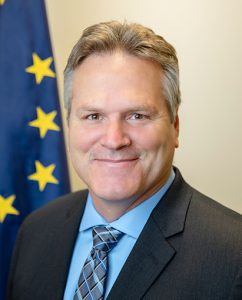
Dunleavy’s super-special election year bycatch task force – Bycatch is on the ballot.
Gov. Mike Dunleavy recently announced the formation of a shiny new “task force,” charged with studying the impacts of bycatch on Alaska fisheries and making recommendations to policy makers. The Alaska Department of Fish and Game has supposedly been doing exactly this for nearly half a century with its permanent voting seat on the North Pacific Fisheries Management Council, or NPFMC. >click to read< By Alexus Kwachka 17:12
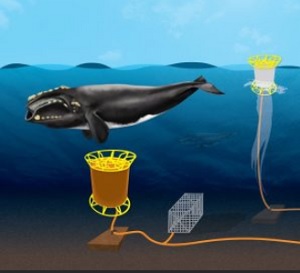
The future of fishing is innovation.
Maine’s lobstermen begin 2022 with a unique opportunity to fundamentally solve the whale entanglement issue. Throughout history technology has been used to improve our lives and solve complex problems. Invention has brought us cell phones, computers, satellites, and soon, self-driving cars and a base on the moon. >click to read< By Zack Klyver 10:55

Letter: Offshore wind
A lot of important information was omitted from a recent article touting Massachusetts’ commitment to 1600 megawatts of offshore wind turbines (“Bay State Windfall” 12/19/2021). The article failed to mention that the turbines won’t come close to generating 1600 MW day-to-day over a year’s time, falling about 55% short. Or that European experience shows that the winds can stop for up to a week’s time, meaning that the wind turbines cannot replace a single megawatt of conventional power. >click to read<, By Robert Pease 12:57

New Leadership at the Helm
Gloucester, Massachusetts, one of the oldest seaports in America has a new Mayor. Mayor Greg Verga was elected to take the helm of the City, and is aware of our problems and wants to help. He is reaching out to those in the seafood industry and will see what we can do as a team, I supported him and am confident he will help. He is the son of Antony Verga, who was our Fisheries Commissioner, and Massachusetts state representative that did a lot to help our fisherman. Regardless of who is in office we need to unite. Together we can do better. Sam Parisi, Gloucester, Massachusetts. 13:25
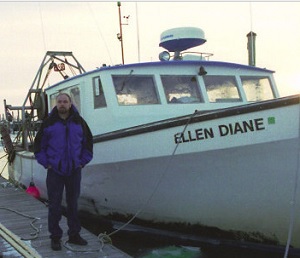
A grievous assault on the lobster resource
In recent years, the federal government in the form of the National Marine Fisheries Service has been expanding restrictions on fin fishermen throughout the U.S.,, The federal government allows each (lobster) fishermen a maximum of 800 traps when fishing in federal waters,,, I take no pleasure in writing this, but as a former New England Fishery Management council member, I feel bound to report a grievous assault on the lobster resource even though the council does not manage lobsters. The goal of writing the article is for the public to apply political pressure to force a solution. I realize that by submitting this request/complaint that I am opening myself up to possible retaliation on the water. I ask both the reader and bureaucracy to keep that in mind. >click to read< By David Goethel 10:30

Trawl Task Force Wins But Fishing Methodology Between N.O.A.A. and Commercial Fishing Today Is Vastly Different
To Whom This May Concern: First I will talk about N.O.A.A.‘s methodology of fishing when their fishing survey was started to find the abundance of fish, but tows were randomly picked, tows were 20 minutes long, using a net which was too small for the boat and the area covered by the bouncing net and wire was minor compared to today’s commercial fishing tows. At that time, these surveys had No Quota Effects on Commercial Fishing. Times have changed since then, BUT NOW N.O.A.A. surveys control fish given to commercial fishing by their inadequate surveys methodology. >Click to read< by Sam Novello, a Gloucester fisherman who cares about the future of fish and fishermen. 23:30
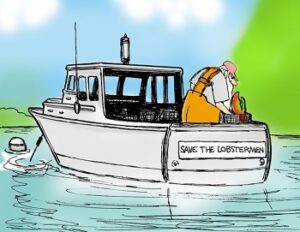
Opinion: Federal rules are sinking Maine’s lobster industry
As a lifelong Maine lobsterman, I understand the inherent dangers of my job. I keep watch on the forecast knowing that sudden weather changes can make the difference between a successful day at work and putting my crew’s life at risk. These days, however, the hazard posed by Mother Nature does not compare with the perfect storm of regulations coming out of Washington that threaten my job, our way of life and may eventually sink a fishery that has supported communities and generations of families here in Maine. By Kristan Porter >click to read< 15:18
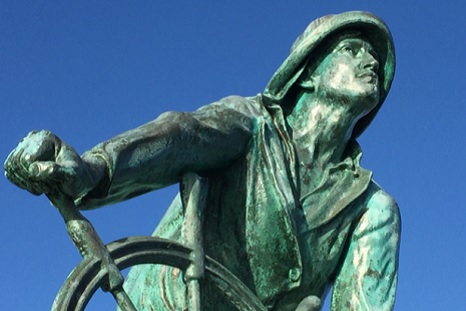
Another Stab in the Back
Reinstatement of excluding commercial fishing in Obama’s Northeast Canyons and Seamounts Marine National Monument by Joe Biden is another stab in our backs. It will hurt fishermen from Maine to Rhode Island. As if we don’t have enough problems with losing ground. Lobstermen and crab fishermen will also be excluded in 2023. A huge mistake has been made, based on the lack of evidence that fishermen have damaged reefs, corals, or hurt any whales. I fished those waters for twenty years, and never saw a piece of coral. The depth is 2.000 feet, but we’d set our nets at 600 feet, never touching bottom. This situation is not good, and will put more fishermen out of business. I don’t know what can be done to overturn this, but something needs to be done. Sam Parisi, Gloucester, Mass. 16:17
A Proclamation on Northeast Canyons and Seamounts Marine National Monument. >click to read<

Offshore wind won’t fish – There is no compatible mixing of wind turbines and fishing!
The endangered species of the Maine fishing family is already dancing around the newly announced National Oceanic and Atmospheric Administration (NOAA) restrictions to protect the right whales from gear entanglement. Add several 10,000-ton floating wind turbines, and even more whale restrictions on the NOAA docket (98 percent gear reduction in 10 years), and you have a severely impacted Maine fishing industry.,, I fear NOAA is more a friend to the Green New Deal than to our fishermen, or even our whales. By Rep. Sherman H. Hutchins, >click to read< 14:21

Mismanaged Since 1949! – A primer on fishing failures
Both the federal and municipal elections heighten our interest in whether or not fishery issues will, at last, be tackled in this province. Perhaps those running for elected positions need a primer on how our fishery was decimated over the past 70 years since Canada took over management of this resource following Newfoundland and Labrador’s Confederation entry in 1949. Hopefully, it will counter the current PR that is being disseminated by DFO, which wants Canadians to believe that it is not the department that has failed our province and our communities, but that the destruction has come from climate change, changes in water temperatures and other uncontrollable factors accounting for the demise of our once great fishery resource. There are still many, including myself, who have worked in the industry all these decades and witnessed first-hand and know full well that DFO has mismanaged our fishery since 1949. >click to read<, By Gus Etchegary, St. John’s 13:30
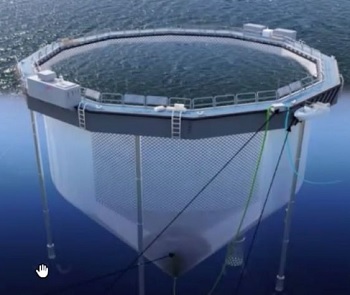
If the Frenchman Bay salmon farm isn’t right for Norway, it’s not right for Maine
About that American Aquafarms proposal: NIMBY- not in my backyard. In this case it applies to the developer, not the opponents. Whenever I describe to people the location of this industrial development in Frenchman Bay, their first reaction is always the same: What were they thinking? How could they possibly do this? The short answer is, the developers came here to do what they couldn’t do back home in Norway. They couldn’t build this project in their own backyard, so they are trying to put it in our front yard,, We’re better than this, and it’s time we stand up for all that is special about the Maine coast and say no. Not here. Not now. Not ever. >click to read< By Jerry Potter 10:55

Lobstermen are opposed to this. Stopping American Aquafarms is your fight, too
The project will include 30 in-water fish pens, 150 feet in diameter; dozens of generators to power pumps and lights day and night; barges for feed and waste, and vessels ranging in size from 50 to 150 feet to process the fish and haul fish waste, fish food and thousands of gallons of diesel fuel. The threat to the bay’s waters and ecosystem from water pollution, fish escapes and disease is alarmingly real. Lobstermen who have fished these waters for generations also are opposed to this project. All 26 lobstermen who fish out of Bar Harbor presented a statement of opposition to the Town Council recently, and fishermen from around the bay are following suit. By Dennis Damon, >click to read< 11:19






